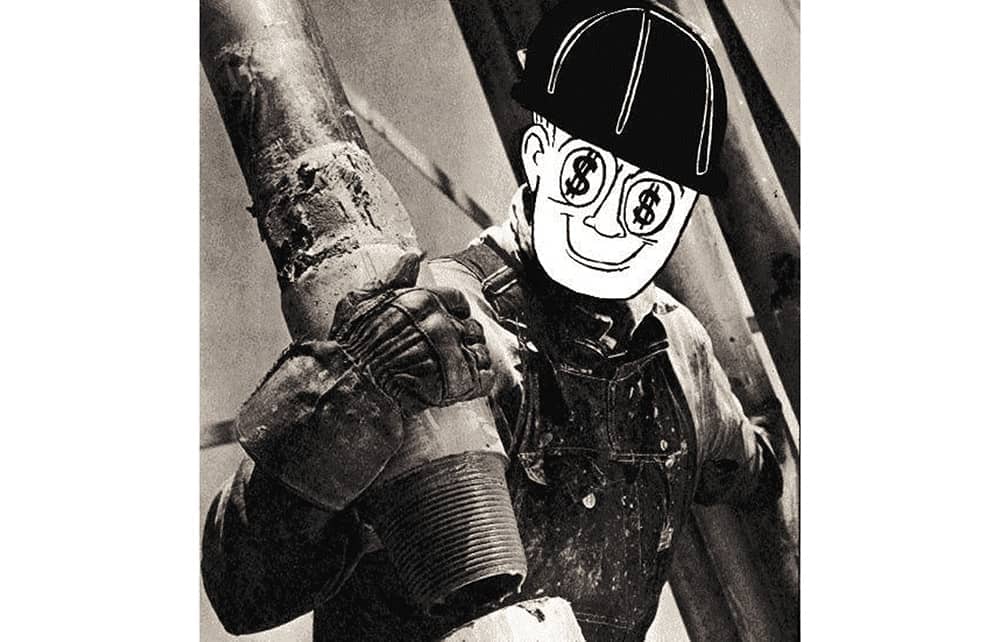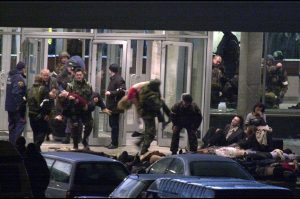Before the invasion of Ukraine, it was by no means certain that there would be a united response from the West. The sanctions imposed on Russia after Vladimir Putin’s annexation of Crimea in 2014 were fairly limited, especially from the European Union. Germany pressed on with the Nord Stream 2 gas pipeline to Russia. But now, America, Europe and much of Asia have been united in applying severe sanctions against Russian banks, companies and oligarchs. Three months on, it’s time to ask: are the sanctions working?
The answer from the Bank of Russia’s balance of payment data for January to April isn’t reassuring. It showed that the sanctions are emphatically not working, at least not in the way that they were intended. Russia’s current account surplus (roughly speaking: exports minus imports) jumped to an all-time high at $96 billion — almost four times the same period last year. The total balance of goods and services shows an even wider gap: $106 billion, treble that of last year.
At this rate, Russia’s current account surplus could hit $250 billion. So the extra money being banked by Russia is almost the same amount as the $300 billion of central bank assets and foreign currency reserves that were frozen by the West after the invasion.
Russia is not exporting more oil and gas. But the war — and the western sanctions — have massively driven up the energy prices. To be sure, Russia will suffer once its stockpiles of western goods and components are used up. Several companies will shut down and lay off workers. The recession will be very deep indeed.
But over time, the situation should improve for Putin. Germany — which relied on Russia for about 55 percent of its natural gas and 34 percent of its oil before the invasion of Ukraine — is insisting on a gradual phase-in of energy sanctions to give the economy time to adjust. If gas is to be shipped in, LNG import terminals will be needed. New suppliers and alternative sources of energy will have to be found. This delay gives Putin time. He will be able to obtain sanctioned electronics components through third countries (especially China) and find new export markets. Countries facing food shortages might also turn to Russian wheat, as well as Russian energy.
Where US-led sanctions have been more successful so far are in their secondary, indirect effects. For now, at least, Chinese companies operating in America feel they have to play along with the global boycott. Some have reduced exports to Russia voluntarily. But the Chinese government is seeking to reduce its dependency on the US financial system. If China insulates itself against any future US sanctions, Chinese companies may be more willing to supply Russia. Western sanctions are at their strongest right now because the world is dependent on the US dollar and the US financial market. That dependency will probably not last.
And let’s not hold our breath for Europe to cut out Russian gas. Olaf Scholz, Germany’s chancellor, is being two-faced about this (just as he is being two-faced about arms deliveries to Ukraine). How can Germany expect to replace Russian gas while also cutting coal, ending nuclear and pursuing the transition to renewable energy sources at the same time? Scholz’s “clean energy” program is the raison d’être of Germany’s new SDP-led coalition.
It’s hard to find a German TV talk show that doesn’t feature a panelist arguing that Ukraine should capitulate to get Europe’s economy moving again. My guess is that Germany’s political establishment is playing for time, hoping that there will be a peace deal in Ukraine as part of which the sanctions will have to be loosened.
Russia’s best strategic option is to play a long game. Putin might dial down his offensive for the moment, bide his time — and wait until he is able to fund the next stage of his military operations. The West should operate on the assumption that the ultimate goal of German politics is to find a way to re-establish trade links with Russia. The apparatus of corporate Germany depends on repairing relations, which Putin understood when he encouraged the Nord Stream energy supply links in the first place.
Putin may be struggling in the military war. But I don’t think he is losing the economic one.
This article was originally published in The Spectator’s UK magazine. Subscribe to the World edition here.

























